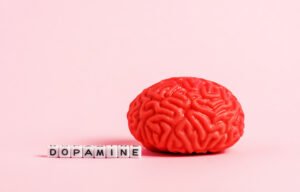Chapter 1: Introduction
Flow is a state of optimal consciousness where we feel our best and perform our best. It is characterized by intense focus, a sense of effortlessness, and a loss of self-awareness. Caffeine can help us achieve flow by increasing alertness, improving cognitive function, and boosting motivation.
Here are three ways that caffeine can help you achieve flow:
- Caffeine increases alertness. Caffeine blocks the effects of adenosine, a neurotransmitter that makes us feel tired. This can help us feel more alert and awake, which is essential for entering and maintaining a state of flow.
- Caffeine improves cognitive function. Caffeine can improve our cognitive function by increasing the levels of dopamine, norepinephrine, and other neurotransmitters in the brain. These neurotransmitters are involved in attention, memory, and decision-making, all of which are important for flow.
- Caffeine boosts motivation. Caffeine can increase our motivation by increasing the release of dopamine in the brain. Dopamine is a neurotransmitter that plays a role in reward and motivation. When we experience a rewarding stimulus, our brains release dopamine, which motivates us to repeat the behavior. This can be helpful for getting started on challenging tasks and staying motivated throughout the flow process.
The Caffeine Commandments for Flow
To maximize the benefits of caffeine for flow, it is important to follow the caffeine commandments:
- Cortisol first, caffeine second. Cortisol is a hormone that helps us wake up and be alert. Consuming caffeine too early in the morning can interfere with cortisol production. It is best to wait at least 30 minutes after waking up before consuming caffeine.
- Avoid consuming caffeine too close to bedtime. Caffeine can interfere with sleep. It is best to avoid consuming caffeine at least 6 hours before bedtime.
- Calibrate the dose. The optimal caffeine dose for flow varies from person to person. Start with a low dose and increase gradually until you find the dose that works best for you.
- Avoid underdosing caffeine when fatigued. When you are fatigued, your brain has high levels of adenosine. To counteract this, you need a higher dose of caffeine. Increase your caffeine dose by about 50% when you are fatigued.
- Give caffeine companions. Caffeine companions are substances that can help to smooth out the effects of caffeine and improve its absorption. Some good caffeine companions include l-theanine, water, and healthy fats.
- Abstain from caffeine sporadically. Taking breaks from caffeine can help to maintain caffeine sensitivity. Aim to abstain from caffeine at least one day per week.
By following the caffeine commandments for flow, you can use caffeine to enhance your cognitive performance, achieve your goals, and live a more productive and fulfilling life.
Chapter 2: The Caffeine Commandments for Flow
Caffeine is a powerful tool that can be used to enhance peak cognitive performance and trigger a flow state. However, it is important to use caffeine wisely in order to reap the full benefits. Here are six caffeine commandments for flow:
1. Cortisol first, caffeine second. Cortisol is a hormone that helps us wake up and be alert. Consuming caffeine too early in the morning can interfere with cortisol production. It is best to wait at least 30 minutes after waking up before consuming caffeine.
2. Avoid consuming caffeine too close to bedtime. Caffeine can interfere with sleep. It is best to avoid consuming caffeine at least 6 hours before bedtime.
3. Calibrate the dose. The optimal caffeine dose for flow varies from person to person. Start with a low dose, such as 100 milligrams, and increase gradually until you find the dose that works best for you.
4. Avoid underdosing caffeine when fatigued. When you are fatigued, your brain has high levels of adenosine. To counteract this, you need a higher dose of caffeine. Increase your caffeine dose by about 50% when you are fatigued.
5. Give caffeine companions. Caffeine companions are substances that can help to smooth out the effects of caffeine and improve its absorption. Some good caffeine companions include l-theanine, water, and healthy fats. L-theanine is an amino acid that can help to reduce the jitters associated with caffeine. Water is important for hydration, which can improve caffeine absorption. Healthy fats can help to sustain focus and energy levels.
6. Abstain from caffeine sporadically. Taking breaks from caffeine can help to maintain caffeine sensitivity. Aim to abstain from caffeine at least one day per week.
By following these caffeine commandments, you can use caffeine to optimize your cognitive performance and achieve flow.
Here are some tips for implementing each caffeine commandment:
1. Cortisol first, caffeine second: Set a timer for 30 minutes after you wake up and resist the temptation to consume caffeine until the timer goes off. In the meantime, sip on some water or herbal tea to get your fluids going.
2. Avoid consuming caffeine too close to bedtime: Create a caffeine curfew for yourself, such as 6 p.m. or 8 p.m. This will help to ensure that caffeine does not interfere with your sleep.
3. Calibrate the dose: Start with a low dose of caffeine, such as 100 milligrams, and pay attention to how you feel. If you are feeling jittery or anxious, reduce your dose. If you are not feeling any effects, increase your dose. Experiment until you find the dose that gives you a boost in energy and focus without making you feel anxious or jittery.
4. Avoid underdosing caffeine when fatigued: If you are feeling fatigued, increase your caffeine dose by about 50%. For example, if you normally consume 200 milligrams of caffeine per day, increase your dose to 300 milligrams when you are fatigued.
5. Give caffeine companions: Pair your caffeine with l-theanine, water, and healthy fats. L-theanine can be found in green tea and black tea. Healthy fats can be found in nuts, seeds, and avocados.
6. Abstain from caffeine sporadically: Choose one day per week to abstain from caffeine. This will help to maintain your caffeine sensitivity so that you can reap the benefits of caffeine when you do consume it.
Following these caffeine commandments can help you use caffeine to optimize your cognitive performance and achieve flow.
Chapter 3: Tips for Using Caffeine Optimally
Now that you know the caffeine commandments for flow, here are some additional tips for using caffeine optimally:
How to find your optimal caffeine dose
Your optimal caffeine dose is the amount of caffeine that gives you the desired boost in energy and focus without making you feel anxious or jittery. To find your optimal caffeine dose, start with a low dose, such as 100 milligrams, and increase gradually until you find the dose that works best for you.
When to consume caffeine for best results
Caffeine has a half-life of about 5 hours, which means that it takes about 5 hours for your body to eliminate half of the caffeine you consume. To maximize the benefits of caffeine for flow, it is best to consume caffeine 30-60 minutes before you want to achieve flow. This will give your body enough time to absorb the caffeine and experience its effects.
How to stack caffeine with other supplements
Caffeine can be stacked with other supplements to enhance its effects on cognitive performance. Some popular caffeine stacks include:
- Caffeine + l-theanine: L-theanine is an amino acid that can help to smooth out the effects of caffeine and reduce jitters.
- Caffeine + creatine: Creatine is a compound that can help to increase energy levels and improve cognitive function.
- Caffeine + rhodiola rosea: Rhodiola rosea is an adaptogenic herb that can help to improve stress resilience and cognitive function.
How to avoid the caffeine crash
The caffeine crash is a feeling of fatigue and irritability that can occur after the effects of caffeine wear off. To avoid the caffeine crash, it is important to consume caffeine in moderation and to avoid consuming caffeine too close to bedtime. Additionally, you can help to mitigate the effects of the caffeine crash by drinking plenty of water and eating healthy snacks.
Conclusion
Caffeine is a powerful tool that can be used to enhance cognitive performance and achieve flow. By following the caffeine commandments and the tips in this chapter, you can use caffeine to optimize your cognitive performance and achieve your goals.
Chapter 4: FAQs
Q: How much caffeine should I consume daily?
A: The recommended daily caffeine intake for adults is 400 milligrams. However, it is important to start with a lower dose and gradually increase until you find the optimal dose for you. Your optimal caffeine dose will vary depending on your individual sensitivity to caffeine and your desired effects.
Q: What are some caffeine companions that I can pair with caffeine to improve cognitive performance?
A: Some caffeine companions that you can pair with caffeine to improve cognitive performance include l-theanine, water, and healthy fats. L-theanine is an amino acid that can help to smooth out the effects of caffeine and reduce jitters. Water is important for hydration and can also help improve caffeine absorption. Healthy fats can help to sustain focus and energy levels.
Q: What should I do if I experience the caffeine crash?
A: If you experience the caffeine crash, there are a few things you can do to help alleviate the symptoms. First, drink plenty of water and eat a healthy snack. Second, try to get some exercise. Third, take a nap if possible.
Q: What is the difference between caffeine and caffeine anhydrous?
A: Caffeine anhydrous is a powdered form of caffeine that is more concentrated than regular caffeine. This makes it a more potent stimulant, but it also means that it is more important to start with a low dose and increase gradually.
Q: What are some caffeine-free alternatives to coffee?
A: Some caffeine-free alternatives to coffee include tea, matcha, and cacao. These beverages contain other compounds that can help to improve cognitive performance, such as l-theanine and theobromine.
Q: Is it safe to consume caffeine while pregnant or breastfeeding?
A: It is generally considered safe to consume caffeine while pregnant or breastfeeding in moderation. However, it is important to talk to your doctor about your individual caffeine needs.
Q: What are some of the benefits of using caffeine for flow?
A: Some of the benefits of using caffeine for flow include:
- Increased energy levels
- Improved focus
- Enhanced cognitive performance
- Reduced fatigue
- Greater motivation
- More intense engagement in activities









